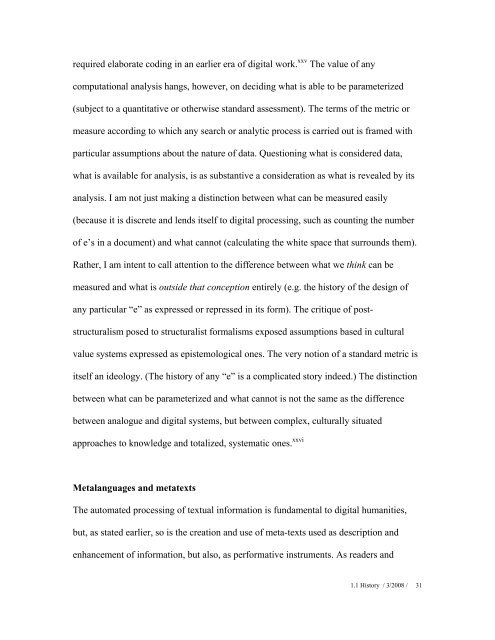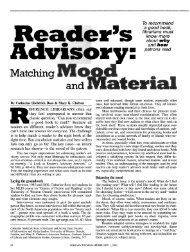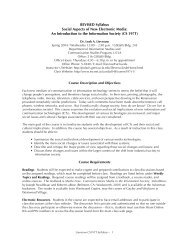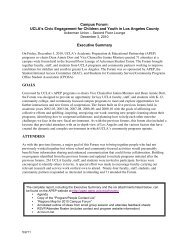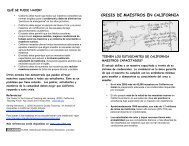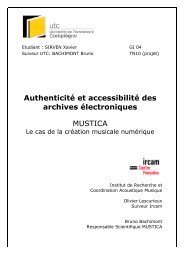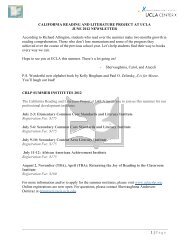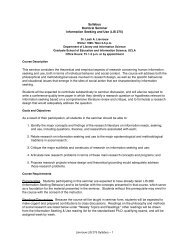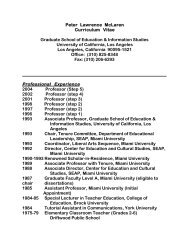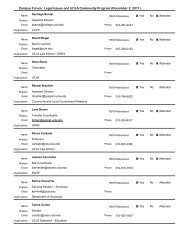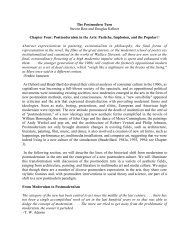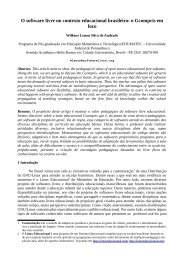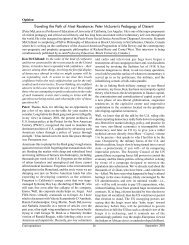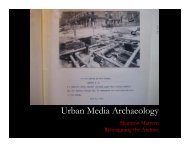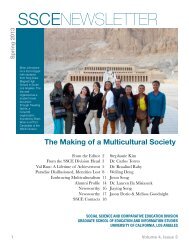1.1 From Digital Humanities to Speculative Computing - UCLA ...
1.1 From Digital Humanities to Speculative Computing - UCLA ...
1.1 From Digital Humanities to Speculative Computing - UCLA ...
You also want an ePaper? Increase the reach of your titles
YUMPU automatically turns print PDFs into web optimized ePapers that Google loves.
equired elaborate coding in an earlier era of digital work. xxv The value of any<br />
computational analysis hangs, however, on deciding what is able <strong>to</strong> be parameterized<br />
(subject <strong>to</strong> a quantitative or otherwise standard assessment). The terms of the metric or<br />
measure according <strong>to</strong> which any search or analytic process is carried out is framed with<br />
particular assumptions about the nature of data. Questioning what is considered data,<br />
what is available for analysis, is as substantive a consideration as what is revealed by its<br />
analysis. I am not just making a distinction between what can be measured easily<br />
(because it is discrete and lends itself <strong>to</strong> digital processing, such as counting the number<br />
of e’s in a document) and what cannot (calculating the white space that surrounds them).<br />
Rather, I am intent <strong>to</strong> call attention <strong>to</strong> the difference between what we think can be<br />
measured and what is outside that conception entirely (e.g. the his<strong>to</strong>ry of the design of<br />
any particular “e” as expressed or repressed in its form). The critique of post-<br />
structuralism posed <strong>to</strong> structuralist formalisms exposed assumptions based in cultural<br />
value systems expressed as epistemological ones. The very notion of a standard metric is<br />
itself an ideology. (The his<strong>to</strong>ry of any “e” is a complicated s<strong>to</strong>ry indeed.) The distinction<br />
between what can be parameterized and what cannot is not the same as the difference<br />
between analogue and digital systems, but between complex, culturally situated<br />
approaches <strong>to</strong> knowledge and <strong>to</strong>talized, systematic ones. xxvi<br />
Metalanguages and metatexts<br />
The au<strong>to</strong>mated processing of textual information is fundamental <strong>to</strong> digital humanities,<br />
but, as stated earlier, so is the creation and use of meta-texts used as description and<br />
enhancement of information, but also, as performative instruments. As readers and<br />
<strong>1.1</strong> His<strong>to</strong>ry / 3/2008 /<br />
31


